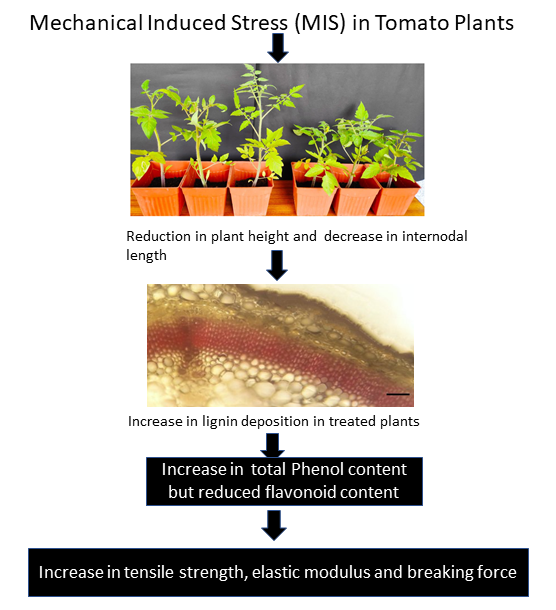Mechanical rubbing of tomato internode influence stem growth, improve tensile strength but negatively impact flavonoid levels

Published 2020-09-23
Keywords
- lignin deposition,
- Lycopersicon esculentum,
- mechanical induced stress,
- phenolic compounds,
- tomato
How to Cite
Abstract
Agricultural crops are exposed to different environmental stress factors on a daily basis. Mechanical induced stress (MIS) caused due to contact rubbing, bending, transplantation and spraying of water results in altered growth in plants (Thigmomorphogenesis). The present study was conducted by inducing mechanical stress (gentle rubbing) on the third internode of tomato (Lycopersicon esculentum Mill.) by pressing with thumb and index finger (30 sec) for 14 consecutive days. At the end of the stress period, marked morphological differences included significant reduction in plant height and decreased internodal length of the rubbed third internode as well as the neighboring fourth internode. Histochemical staining of the stem cross section of stressed plants showed intense color indicating lignin deposition. Study of biochemical response post internode stress showed an increase in total phenol content but lower flavonoid contents. Stress induction also resulted in modification of biomechanical characteristics like tensile strength, elastic modulus and breaking force. Studies on the effect of mechanical perturbations in plants has gained attention because of its implication in fundamental processes of organogenesis/morphogenesis and their potential as an innovative means of controlling plant growth.





